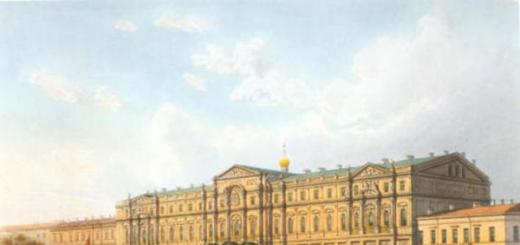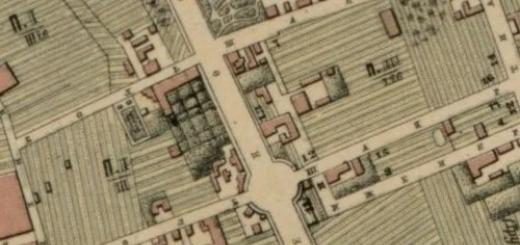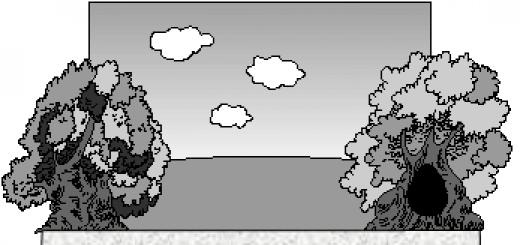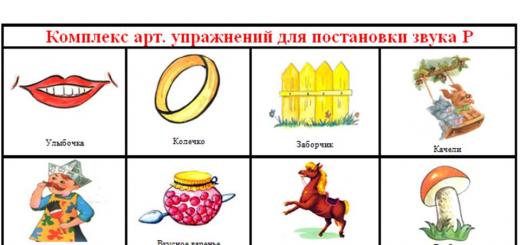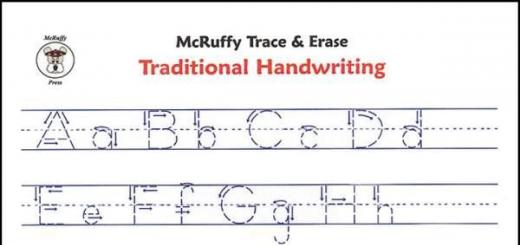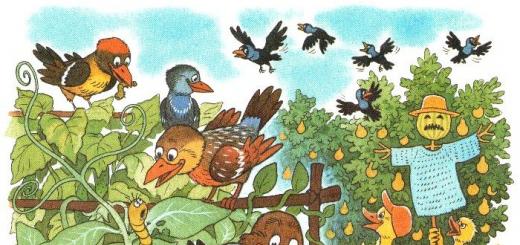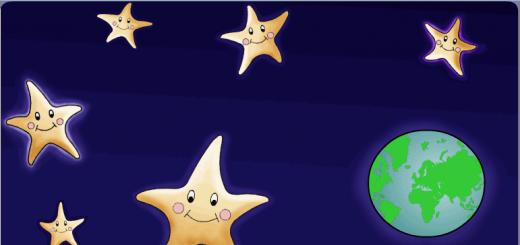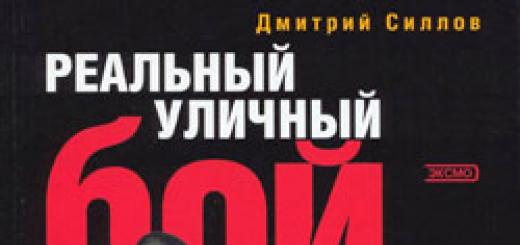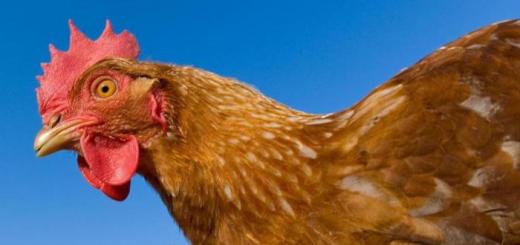For the correct execution of the thirteenth USE assignments in Russian, graduates can receive one primary score. To do this, write out two words from the sentence that satisfy the condition. The task contains only such parts of speech as conjunctions, particles, prepositions, pronouns, adverbs and allied combinations. It is important to be able to distinguish between the meanings of homonymous words, which will help the theoretical material below.
Theory for assignment No. 13 USE in the Russian language
Spelling of different parts of speech
| Slitno | Apart | Through a hyphen | |
|---|---|---|---|
| Unions | Because, because, since, because, but, why, also, too, moreover, moreover, as if, as if, so that, then so that, if | As if, that is, since, if, as if, or, due to the fact that, then ... then, | |
| Allied combinations | Due to the fact that, due to the fact that, | not that... not that | |
| though | |||
| Pronouns | Nobody', nothing', | From someone, from something | Someone (-someone, -or, -someone, something) |
| Not who, not what, not what | with no one, with no one, | ||
| the same as; the same, the same, the same | |||
| Adverbs | From everywhere, from now on, in part, in general, | Tirelessly, side by side, eye to eye, in general, so far, abroad, abroad, everything is the same, exactly the same | Somehow (something, -something, something, something), |
| soon, in an undertone, alone, in advance, at first, at first, at first, little by little, completely, why, then, immediately, immediately | Russian, I think | ||
| hare, firstly, | |||
| barely, barely, barely, today or tomorrow, | |||
| de jure, de facto | |||
| Prepositions | As a result, due to | During, in continuation, in conclusion, in contrast, in order, in force, in measure, in the form, in the field, | Because of, from under, over |
| towards, about | throughout, with respect to, except for, | ||
| like, following | on account, | ||
| over, instead of, | not to mention | ||
| inside, in view | |||
| like, | |||
| in spite of, | |||
| regardless of | |||
| Particles | Even, really, really | Whether, would, | Anyway, let's |
| just what for |
Derivative prepositions / nouns with a preposition
| derived preposition | Noun with preposition |
|---|---|
| During | During |
| -during the winter | - in the course of the river = in the fast flow of the river |
| -in two hours | |
| In continuation | In continuation |
| Answers the questions “How long? When?" | An adjective or participle can be placed between a preposition and a noun. |
| - for a whole week | -in the sequel of the movie = in the long-awaited sequel of the movie |
| - for two months | |
| Due to | In consequence, in consequence |
| Can be replaced by the preposition "because of"; answers the question "Why?" | An adjective or participle can be placed between a preposition and a noun. |
| - due to illness | - in the investigation of the case = in the long investigation of the case |
| -to the investigation of the case = to the sensational investigation of the case | |
| Towards | For a meeting |
| Can be replaced by the preposition "to"; answers the question "Where?" | |
| - towards him | - to meet a friend = to a long-awaited meeting with a friend |
| In view of | Keep in mind |
| Can be replaced by the prepositions "because of" and "because of"; answers the question "Why? From what?" | Set expression |
| due to bad weather | |
| About | To account |
| Can be replaced with the preposition "o (about)" | An adjective can be placed between a preposition and a noun. |
| - make arrangements for a trip | -to the fund's account = to the fund's bank account |
| Like | Like |
| Can be replaced with the preposition "like" | I mean the geometric term |
| - like lunch | |
| Finally | In custody |
| Can be replaced by the words "completing, in the end, in the end" | An adjective can be placed between a preposition and a noun. |
| -in custody = in strict custody | |
| Following | Track to track |
| It means "where" | Meaning "for" |
| -we watched the departing train | -Children follow each other |
It is important to remember the spelling of the following words: in connection with, in contrast to, after (= behind), in the middle, near, instead of, throughout
Derived prepositions / gerunds
Conjunctions/pronouns with a particle
| Union | Pronoun with particle |
|---|---|
| To | What would |
| Can be replaced by unions "in order to, in order to"; "would" can not be removed from the phrase | Can be replaced by a noun; "would" can be rearranged |
| -I came to tell you = I came to tell you | -I asked what else I should read = I asked what book I should read = I asked what else I should read |
| Also, also | Same, same |
| You can replace the union "and", putting it at the beginning of the sentence; "same" can not be removed from the phrase | "yes" can be rearranged |
| - I also saw this movie = and I saw this movie | -I have also read this book = I have read the same book |
| But | For that |
| Can be replaced by the union "but" | "that" can be replaced by a noun, adjective or adverb |
| - we rarely see each other, but often call each other = we rarely see each other, but often call each other | - don't take on things you don't like = don't take on things you don't like |
| so | So |
| Can be replaced by the words "to sum up, therefore" | It means "very" |
| - so, we can say that = summing up, we can say that | We were tired and so hungry that we decided to stay at a hotel. |
| Because | From that |
| Meaning "because" | Can be replaced by a noun with a preposition |
| -it happened because = it happened because | -from what he will do = from the act that he will do |
| Moreover, and | At the same time, at what |
| Can be replaced by the words "in addition", "at the same time" | "volume" can be replaced by an adjective |
| -it works quickly and also qualitatively = it works quickly and also qualitatively | -that building has a beautiful garden = a tall building has a beautiful garden |
Task execution algorithm
- Read the assignment carefully.
- We analyze each sentence, opening brackets in accordance with the spelling rules of the Russian language.
- Write down the correct answer.
Analysis of typical options for task No. 13 USE in the Russian language
The thirteenth task of the 2018 demo
- (FOR) BECAUSE L.N. Tolstoy, his relatives could guess (ON) HOW hard his brain is working now.
- From the first pages, I experienced a strange feeling: AS if (WOULD) from a gloomy world I (THAT) HOUR was transferred to another world - sunny and bright.
- (B) SUBSEQUENTly, researchers have repeatedly said that the apotheosis of Russian glory is the painting "Bogatyrs", in which V.M. Vasnetsov expressed his romantic and at the same time deeply civic understanding of Russia.
- The physical properties of interstellar gas essentially depend (FROM) THAT whether it is in relative proximity to hot stars or, (ON) REVERSE, sufficiently far from them.
Task execution algorithm:
- Read the assignment carefully.
- (FOR) BECAUSE L.N. Tolstoy, his relatives could guess (ON) HOW hard his brain is working now.- FOR THAT we write separately, since this is a preposition with a demonstrative pronoun; HOW we write together, since it can be replaced by the pronoun HOW.
- (C) CONSEQUENTLY, scientists have found that magnesium plays an important role in regulating potassium levels in the body, and ALSO regulates the functioning of the adrenal glands.- AFTER we write together, since this is an adverb that can be replaced by an adverb THEN; We ALSO write together, since it is impossible to omit the particle SAME without losing the meaning.
- From the first pages, I experienced a strange feeling: AS if (WOULD) from a gloomy world I (THAT) HOUR was transferred to another world - sunny and bright .- AS if we are writing separately, since the particle can be omitted without loss of meaning; IMMEDIATELY we write together, as it can be replaced IN THE SAME INSTANT.
- (B) SUBSEQUENTly, researchers have repeatedly said that the apotheosis of Russian glory is the painting "Bogatyrs", in which V.M. Vasnetsov expressed his romantic and at the same time deeply civic understanding of Russia.- AFTER we write together, since we can replace THEN; We write the SAME separately, since it is possible to omit the particle without losing the meaning.
- The physical properties of interstellar gas essentially depend (FROM) THAT whether it is in relative proximity to hot stars or, (ON) TURN, is sufficiently distant from them.- FROM TOTO we write separately, since this is a preposition and a demonstrative pronoun that can be replaced by a noun; On the contrary, we write together, as it can be replaced with an adverb OPPOSITE.
- Write down the correct answer: subsequently, also.
The first version of the task
Task execution algorithm:
- Read the assignment carefully.
- We analyze each sentence, opening brackets in accordance with the spelling rules of the Russian language:
- We decided to go (IN) THIS alley, BECAUSE (BECAUSE) it is quiet: there is no traffic here at all.- both words are written separately; “because” is a union, and “for this” is written separately, since this is not an expression of a consequence and is the word “lane”.
- (C) DEPENDING on the situation of communication, people behave (ON) DIFFERENTLY.- “depending on” is always written separately, and “differently” is hyphenated.
- (NOT) ALWAYS we understand the meaning of toponyms, (FOR) OFTEN sounding strange to the ear of a modern person.- "not always" is never written together; “often” is written together, but the task says that both words in the sentence should be written together.
- (THIS) HOUR, he strives to achieve his goal at WHAT (WHAT) IS POSSIBLE.- it is written together "now", replaced by the combination "at the moment"; but "by all means" is always written separately.
- Set an alarm clock, (WHAT) WOULD NOT oversleep and get up (FOR) EARLY.- “to” is written together, as it is replaced by the combination “in order to”. “Early” is an adverb that is always spelled together.
- Write down the correct answer: to, early(Remember to write your answers without spaces or punctuation marks on the exam).
The second version of the task
Task execution algorithm:
- Read the assignment carefully.
- We analyze each sentence, opening brackets in accordance with the spelling rules of the Russian language:
- Nobody travels THIS path, BECAUSE the road here is in disrepair.-"On this path" - separately; can be replaced, for example, with the combination "the old way". "Because" - again, separately.
- (TO) THE MEETING we were late, although (FROM) DUE TO the snowfall we left the house an hour earlier.-“For a meeting” is separate, since it can be replaced with “for a business meeting”, or “for an important meeting”, and “because of” is written with a hyphen, as it indicates the reason.
- AND(SO), (C)CLOSING let me thank you for your cooperation.- “So” is written together, but “in conclusion” is written separately.
- (B) DUE TO the unstable political situation, the trip to Egypt, which we (IN) HURRY planned, had to be postponed.- “In view of” is written together - it is replaced by the word “because of”; "hurriedly" - an adverb, written together.
- (B) GAVE from civilization you AS (IF) are aware of all the imperfection of our modern world.- “away” is written together (replaced by “far”), but “as if” is always written separately.
- Write down the correct answer: I mean, hastily.
The third version of the task
Determine the sentence in which both underlined words are spelled ONE. Open the brackets and write out these two words.
Task execution algorithm:
- Read the assignment carefully.
- We analyze each sentence, opening brackets in accordance with the spelling rules of the Russian language:
- WHAT (WHAT) they say about Russia abroad, but the country has long been (NOT) THE same as it was in the 90s.- “Whatever” and “not that” are written separately: in the first case, “would” can be rearranged - “whatever they say about Russia”, and in the second it is simply impossible to write together.
- I tell you the SAME thing that Andrei, WHAT (WOULD) you have the same information.- “The same” is written separately, but “in order to” is written together, we replace it with “in order to”.
- (APPOINTINGLY) Alexey did not hear what I answered him, (FOR) BECAUSE he repeated his question.- “Apparently” is an adverb that we write with a hyphen; “because” is merged as part of the union “because”.
- Pushkin (THAT) HOUR became addicted to billiards, although he did not become a serious player (SO).- "Immediately" - an adverb, written together; "So and" are written separately.
- My sister sang (B) HALF A VOICE, I THAT (SAME) began to quietly sing along.- The last sentence remains; "in an undertone" is always written together; We also write “too” together - we replace it with the union “and”.
- Write down the correct answer: in an undertone, too.
Task 13 USE in Russian
Continuous, hyphenated, separate spelling of words
Slanted spelling:
Compound words with a connecting vowel O or E
Words without a connecting vowel, the first part of which is presented in the initial form (time-measuring)
Words containing air-, agro-, aluminum-, asbo-, astro-, audio-, aero-, baro-, benzo-, biblio-, bio-, velo-, vibro-, saw-, helio-, geo-, hydro-, homo-, grapho-, deca-, dendro-, zoo-, iso-, quasi-, cinema-, cosmo-, pseudo-, litho-, macro-, mega-, meta-, meteo-, micro- , mono-, motto-, multi-, neuro-, neuro-, geo-, onco-, ortho-, pan-, paleo-, para-, pneumo-, poly-, pseudo-, psycho-, radio-, seismo -, socio-, spectro-, stereo-, tele-, thermo-, turbo-, tetra-, phyto-, photo-, phono-, evaco-, exo-, eco-, electro-, endo-, entero-, ethno-
Compound words and abbreviations
Compound words whose first part is verb stem and ends with I
Words derived from geographical names hyphenated
Words with the first part board-, words with the second part -meter, - count
One of the parts is not used independently
If you cannot insert AND or BUT between two adjectives
Adverbs formed from the basis of O or E and an adjective or participle and used as terms
Words without a connecting vowel, the first part of which is a cardinal number
Compound words ninety, one hundred, a quarter, used in the form of the nominative case
Derivative words from the word forty have a connecting vowel A (but: forty-leg, fortyOput, forty-mouth)
Words two, three in the composition of compound words have the forms of two-, three-, two-, three-, tre-
half- (semi-), if the word does not begin with a vowel, with the letter L or with capital letter
3) Adverbs, prepositions and conjunctions look in dictionaries and remember
Hyphen spelling:
1) Adjectives and nouns:
Which are geographical or administrative names and begin with: north, south, south, east, west, north, east, south, west
Complex terms naming devices, mechanisms, devices, professional concepts, with roots block-, vacuum-, diesel-, dynamo-, camera-, press-, stop-
Dishes and plants
Units
Name of socio-political associations
Names in which the first word is a general name, the second is more specific
Plant names containing a verb or conjunction
Formed from the bases of adjectives, between which unions AND, BUT can be inserted
Denoting shades of colors
Formed from a combination of a first name and patronymic, a first name and a surname or two surnames, etc.
2) Numeral names and words that have numerals in their composition:
FLOOR - (half), if the word begins with a vowel, the letter L, or an uppercase letter.
3) Adverbs:
With the prefix something
With suffixes -something, -either, -something, -the same
With a prefix in - and suffixes -om (-him), -i
With a prefix in- (in-) and a suffix –s (-s)
with the same roots
4) Pronouns:
With the prefix something
With suffixes -something, -either, -something
5)Particles:
-something, -either, -something, -ka, -de, -s, tka, -tko, -taki
Separate spelling:
1) Nouns:
If the words are Mini, Maxi come second
2) Adjectives:
If the adverb is quickly used in direct meaning
The word forever is always written separately (except for the word evergreen)
3) Numeral names and words that have numerals in their composition:
FLOOR - (half), if there is an adjective or pronoun between it and the word.
Quantitative combinations that include the word half
4) Adverbs, prepositions and particles should be looked up in dictionaries and memorized
Test options for task 13 from the Unified State Examination in Russian:
Try to solve them yourself and compare with the answers at the end of the page
Example 1:
(FOR) IN THE BEGINNING it seemed that Kirill's words at the meeting did not make any impression, but (IN) SOON it turned out that the whole department was discussing his speech.
(AT) THE BEGINNING of the young writer's novel it was difficult to judge the author's talent, but (AT) AFTER the readers appreciated his work.
Pavel Petrovich (NOT) ONCE helped his brother when he was tormented, thinking of HOW (WOULD) dodge and find the missing amount.
The thought of (ABROAD) BORDER, the need to buy suitcases, tickets, choose a route leads Oblomov, (B) UNLIKE his friend Andrei Stolz, into a state close to panic.
We (Little by little) moved forward and just as (SAME), as before, did not get tired of being surprised by the beauty of nature.
Example 2:
Determine the sentence in which both underlined words are spelled ONE. Open the brackets and write out these two words.
Oh, WHAT (WOULD) I just not give in return for those moments of happiness! (WHY) WHY did I leave my homeland?
Orchid seeds, (B) DIFFERENT from ficus seeds, are (FOR) SO small that they look like dust.
We went down to the valley and, (AS) JUST found water, THAT (HOUR) stopped.
Be as polite in words as in deeds, say THAT (SAME) what you think.
At this moment, the sparrows THAT (SAME) noticed the danger and rushed (B) Scattered.
Example 3:
Determine the sentence in which both underlined words are spelled ONE. Open the brackets and write out these two words.
(FROM) HOW this meeting will go, a lot depends, (FOR) THIS I'm so worried.
On a sunny day, aspens gathered at the edge of the forest, AS (IF) they became cold and they went out to warm themselves, as in the villages people leave their houses and (IN) THE PLACE they sit on the rubble.
(FROM) WHAT do people not fly and (WHY) WHAT do they not have wings?
Ivan Petrovich stood with his eyes closed, AS (WOULD) gathering his thoughts, WHAT (WOULD) say final word.
Misha silently watched the arguing brothers, Vasily SO (SAME) (IN) DURING the entire discussion did not utter a word.
Example 4:
Determine the sentence in which both underlined words are spelled ONE. Open the brackets and write out these two words.
(B) IN VIEW of the refractoriness and high chemical resistance of platinum, laboratory glassware is made from it, as well as corrosion-resistant parts of the equipment.
The poem "Mountain Road" is perceived quite (ON) DIFFERENT, (ON) BECAUSE that feelings of anxiety, sadness, sadness come to the fore in it.
(B) THE COURSE OF LIFE Richter toured a lot in different countries world, (ATTENTION) the most interesting of his tour, he considered a concert tour of Russia.
(IN) TIMES A.S. Pushkin, the ballerina A.I. shone on the St. Petersburg stage. Istomin. She shines SO (SAME) in "Eugene Onegin".
(B) DURING the whole morning, Kirill did not leave the feeling AS (IF) the air was washed with spring water.
Example 5:
Determine the sentence in which both underlined words are spelled ONE. Open the brackets and write out these two words.
(NOT) DESPITE the ambiguity in the interpretation of certain provisions, general theory Relativity is widely recognized (FROM) FOR its fundamental simplicity.
Salts, (ON) EXAMPLE, can be represented (B) as the results of the interaction of acidic and basic oxides.
(C) CONCLUSION It should be said that both Pushkin and Griboedov managed to psychologically correctly portray the noble society of their time, (C) PARTICULARLY the Moscow nobility.
(FOR) AS MUCH the artist freely chooses methods and plans, then he, (WITHOUT) DOUBT, is free to be independent in his work.
(On) HARD decisions made (C) HOT will be the right ones.
Example 6:
Determine the sentence in which both underlined words are spelled ONE. Open the brackets and write out these two words.
WHAT (WHAT) the guest said, Katerina looked SO (SAME) strictly, as before.
Only with the recognition of Ilya Ilyich to Olga (AT) AT THE BEGINNING of the second part of Oblomov does the plot appear, and (FOR) THEN the action of the novel, which was absent in the first chapters.
(C) THE BEGINNING Marina was uncertain in the village, and even, seeing Lena in the distance, she went into a tall dense rye overgrown with cornflowers, THAT (WOULD) just not catch her neighbor's eyes.
Oblomov draws his ideal to Stolz family life with reference to spiritual inquiries unknown to his ancestors, but (B) GENERALLY maintaining the patriarchal-idyllic spirit: walks (B) TWO after a hearty breakfast, unhurried conversations with friends.
SOMEWHERE in the forest a long howl was heard, but (NONE) of the hunters even flinched.
Example 7:
Determine the sentence in which both underlined words are spelled ONE. Open the brackets and write out these two words.
(B) IN THE BEGINNING of August, the heat is unbearable - even the most determined person is not able to hunt, the most devoted dog, exaggeratedly sticking out his tongue, humbly wags his tail, but (B) does not go BEFORE.
IF (IF) nature could feel gratitude to a person (FOR) THAT he penetrated into her life, exalted and glorified her, this gratitude would fall to the lot of Prishvin.
The sun quietly set behind the mountains, threw (TO) TOP a farewell green beam, and Baikal (THOT) HOUR reflected delicate greenery in itself.
Andrei Rublev was (TRULY) an outstanding master of ancient Russian painting, but little is known about him: (FROM) THAT distant time, only a miniature depicting the artist has been preserved.
NOT FOR ANYTHING in the world did Marusya agree to part with (FROM) ME.
Answers:
first, soon
also, scattered
why why
in view also
hastily, hardly
first to
Task 13
1.
(I) SO, Konstantin claimed that this trip added vitality, I said the SAME (SAME) thing.
TO be happy, you need to strive for success and at the SAME time you need to learn nobility in relation to the people around you.
Soon, the birds (CO) EVERYONE fell silent, except for one, which (ON) DIFFERENTLY chirped everyone.
The stranger disappeared around the corner AS (SAME) suddenly as he appeared, (FOR) THIS was not possible to consider him.
(AT) THE END the rain stopped, but SOME (WHERE) heavy masses of partly scattered clouds still crowded.
2. Determine the sentence in which both underlined words are spelled ONE. Open the brackets and write out these two words.
(WHY) WHY, looking at one portrait, do we stare (FOR) LONG, admiring the image, and indifferently glide with a quick glance at another?
Even after the death of Bach in THAT (SAME) magistrate, his pedagogical activity, AS (SAME), as well as composing, did not receive a proper assessment.
Many of Levitan's works are imbued with sadness, perhaps (FOR) BECAUSE the nature in the artist's image AS (AS IF) is in disharmony with human life.
SOME (WHERE) (IN) DALI ripening rye turns yellow.
They (AS) AS if they agreed - they arrived at the same (SAME) time.
3. Determine the sentence in which both underlined words are spelled ONE. Open the brackets and write out these two words.
I will (NOT) DISTURB (NOT) A LITTLE.
Review is a genre literary criticism, but at the SAME time it is also considered a genre of bibliography, (BY) AS IT arose from bibliographic description books.
Kindness for the soul is THAT (SAME) that health is for the body, it is SO (SAME) necessary for a person.
When (TO) MEET the guests the old man came out, I (THAT) HOUR recognized him.
She was grateful to him (FOR) THAT he (B) CONTINUED an hour to follow things.
4. Determine the sentence in which both underlined words are spelled ONE. Open the brackets and write out these two words.
(FROM) FAR, all AS (IF) bending down on its way, thunder rolled.
Blooming lilac spread (IN) CIRCLE its (NON) REPEAT aroma.
We so often look for the meaning of life, forgetting about loved ones, (FOR) THIS SO (SAME), as well as the meaning in life, we do not find mutual understanding.
There are beloved women whose eyes affect us not (IN) DIRECTLY, but later, AS (THAT) unexpectedly.
SOMETHING (THAT) disturbed me in this case.
5. Determine the sentence in which both underlined words are spelled ONE. Open the brackets and write out these two words.
(WHAT) WOULD arrive on time (AT) THE MEETING, we left early.
(FOR) THE REASON for a protracted (NOT) NASTIA campaign was canceled.
The Meshchersky region is SO (SAME) modest, like the paintings of Levitan, and there is THE SAME (SAME) grandeur and tranquility in it, as in the paintings of the artist.
We looked (AT) THE RIGHT, but the road and (NOT) SAW.
(B) CONSEQUENCE of bad weather, we (THAT) SAME remained in the hut until the evening.
6. Determine the sentence in which both underlined words are spelled ONE. Open the brackets and write out these two words.
The sun penetrated everything (ON) THROUGH in the forest, except for the pine forest, and even that SOME (WHERE) was cut with golden rays.
You look at the sky strewn with stars and you will understand (WHY) nature is AS (THAT) in a special way silent.
Not everything is fine with speech in everyday life, (FROM) WHERE it is (FOR) FREQUENTLY transferred to the stage.
The age of a city is usually determined (BY) WHEN the city is (B) FIRST mentioned in written sources.
He saw the trays with flowers and scolded himself FOR (THAT) that he had not guessed to buy flowers (FOR) EARLIER.
7. Determine the sentence in which both underlined words are spelled ONE. Open the brackets and write out these two words.
(AND) SO, to summarize everything that has been said: the forest is our healer, our wealth and, (ON) THE END, the best outfit of the earth.
It was necessary to wait for Semenov at all costs, (BECAUSE) because his arrival decided a lot.
The sky was frowning SO (SAME) as yesterday, the sea was stormy, (FOR) THIS boat trip had to be postponed.
(B) DURING last summer I had to live in an old manor near Moscow, (IN) THAT it did not look like ordinary estates.
You THAT (SAME) must have it (IN) VIEW.
8. Determine the sentence in which both underlined words are spelled ONE. Open the brackets and write out these two words.
(B) QUICKLY we went out to the clearing, (And) we were SO happy about the long-awaited rest that we immediately hurried to take off our backpacks.
(FOR) BECAUSE, as the interlocutor said, it was clear that he was the SAME (SAME) worried.
In the yard, from the impending (GR) EVERYWHERE, vegetation has become AS (IF) closer.
Sometimes you wander (IN) BLIND around the house and spend (ON) EMPTY time.
(DURING) DURING the holidays, father (ON) worked a LOT.
9. Determine the sentence in which both underlined words are spelled ONE. Open the brackets and write out these two words.
(B) CONTINUATION OF THE DAY, the father recalled his past life several times, but WHAT (WHAT) he told, everything was interesting.
(OVER) THAT hill is my village, and I'm sad (FROM) THAT I haven't been there for a long time.
(And) SO, let's start with the fact that I (IN) THE END arrived in my hometown.
At least dress (NOT) RYAKHA in silk, look at everything (NOT) (AT) WHAT.
(IN) THE CURRENT of the river there was a sharp turn, (FOR) THAT we had to carry the boats on dry land.
10. Determine the sentence in which both underlined words are spelled ONE. Open the brackets and write out these two words.
The experiment was carried out successfully, AND (WHAT) for the first time, (FOR) THIS everyone was very pleased.
The barge was moving (STILL) downstream, but (ON) SO slowly that it seemed to be stationary.
Pelageya was a person (ONLY) VERY open, kind; (FOR) THEN she was loved in the village.
SOMEWHERE (THAT) in the SOUTH (EAST) there was a battle.
11. Determine the sentence in which both underlined words are spelled ONE. Open the brackets and write out these two words.
I am not a rich person; my affairs are upset, and besides (SAME) I got bored of wandering from place to place (B) FOR a whole year.
For some little things, BECAUSE, for example, how they both (IN) THE PLACE brewed coffee, I could conclude that they live peacefully, prosperously and that they are glad to have a guest.
(AT) THE BEGINNING of September, the nights become cold, frosty, (FOR) THEN the days are warm, windless.
(B) SOON Stepan will bring mail, as well as (SAME) products.
The forest (IN) THE CIRCLE (AS) AS if fell silent in anticipation of something.
12. Determine the sentence in which both underlined words are spelled ONE. Open the brackets and write out these two words.
(FROM) THE place where they said goodbye to Brook, they were now separated by at least five kilometers, (FOR) THAT there was no point in going back.
And the pale grebe THAT (SAME) is needed, (FOR) THAT nature created it.
HERE (SAME) it was necessary to ask unfamiliar people WHAT (WOULD) call their mother.
The hostess could not understand (WHY) WHY I was taking so long, (IN) FOR several minutes, looking at the photos on the wall.
(B) DURING THE WEEK (ON) A storm of work was going on in the midst of our yard.
13. Determine the sentence in which both underlined words are spelled ONE. Open the brackets and write out these two words.
In response to strong arguments, the doctor agreed to be my second; I gave him SO (SAME) a few instructions (IN) ACCOUNT of the conditions of the duel.
(B) DURING THE DAY M.V. Lomonosov observed the passage of Venus across the solar disk and (IN) AFTERNOON published his findings in a special paper.
(C) A CONSEQUENCE of the fact that the work of electric potential forces does not depend on the shape of the path of a unit charge, on each of the parallel-connected conductors one and THEN (SAME) voltage appears.
There is no way to see the figure of the prodigal son in the picture, his face is almost invisible, but (B) FOLLOWING him we mentally fall to our knees and ALSO (SAME) experience a meeting with his father, like the returned son.
(IN) THE AUTUMN FOREST (ON) A girl was walking towards me.
14. Determine the sentence in which both underlined words are spelled ONE. Open the brackets and write out these two words.
The Petrovs THAT (SAME) rested in the Caucasus and (FOR) THAT they know these places so well.
BECAUSE, as my father looked at me, I realized that he (SAME) knows about the incident.
Among the familiar forest you get lost, as if all the trees and bushes THAT (HOUR) threw off a common green mask, (THAT) THE SAME tree looks completely different.
At the (END) it began to get dark, and I, (SO) AS well as my comrades, lost hope of reaching the mouth of the river today.
(FOR) BECAUSE, as Mikhail was worried, it became clear that he was SO (SAME), like me, not indifferent to the fate of Mary.
15. Determine the sentence in which both underlined words are spelled ONE. Open the brackets and write out these two words.
WHAT (WOULD) raise a puppy, you need a lot of effort, FOR (THAT) how much joy he will bring to you!
Younger son SO (SAME) loved books, like everyone in our family, (FOR) THAT we had no doubt about what to give him on his birthday.
WHAT (WOULD) the fish peck AS (SAME) well as yesterday, I dug up fresh worms.
I thank you, and ALSO your secretary FOR (THAT), that I was given the opportunity to study this project.
(B) SOON at the end of the street FROM (FOR) the corner appeared a passer-by.
16. Determine the sentence in which both underlined words are spelled ONE. Open the brackets and write out these two words.
Ryzhik can be collected both in autumn and (B) DURING the whole summer: it all depends (FROM) on what kind of summer.
(AT) THE END I managed to catch the (THAT) HOUR when the slanting rays of the sun begin to penetrate the forest like golden spokes.
Just as (SAME) as a person's childhood seems to him (FOR) AFTERNOUNCATION beautiful, memories of the harsh dawn of mankind are painted for us in a romantic haze.
He spoke the language AS (SAME) easily as people control their voice, (BECAUSE) he learned the language from ordinary people.
At the foot of the pine tree, translucent (TO) THROUGH, fragile, tender, (FROM) INSIDE lilies of the valley glow.
17. Determine the sentence in which both underlined words are spelled ONE. Open the brackets and write out these two words.
It was a sad August night - sad, (FOR) BECAUSE it already smelled of autumn and summer was in a hurry (TO) MEET the first September cold.
(IN) CIRCLE of the gazebo they planted lilacs, and (IN) FOR a whole month we felt its most delicate aroma.
It should be kept in (B)VIEW that many physical phenomena are associated with heating, cooling and depend SO(SAME) on the transition from one state of aggregation into another.
(BEHIND) THAT turn is our unit, (FOR) THIS commandant's patrols came across to us more and more often.
Snow in the north only melts (B) at the beginning of June, and at the end of September it falls (B) NEW.
18. Determine the sentence in which both underlined words are spelled ONE. Open the brackets and write out these two words.
Our grandfathers and great-grandfathers (FOR) THAT fought, WHAT (WOULD) we lived in peace and harmony.
Another writer seems to be a giant (FOR) BECAUSE he is (B) LEVEL with the reader.
Treat your parents the way you would like your own children to treat you.
BECAUSE, as he fell silent, and SO (SAME) in his guilty look, Serpilin felt that a man was standing in front of him, unable to defend himself.
They SO (SAME) noisily rose (IN) THE MOUNTAIN.
19. Determine the sentence in which both underlined words are spelled ONE. Open the brackets and write out these two words.
Variants of the chapters of the book are so (NO) ANYONE (NOT) PUBLISHED.
WHAT (WOULD) agree, it is not necessary (NONE) to persuade ANYONE so persistently.
No matter how much my friend (NOT) tried, he could not distinguish ANYTHING (ANYTHING) that looked like a boat.
(ON) THIS bridge people have not been walking for a long time, (ON) BECAUSE it is in disrepair.
On the slopes of the hill RARE (RARE), but ALL (SAME) blackberry bushes grow.
20. Determine the sentence in which both underlined words are spelled ONE. Open the brackets and write out these two words.
WHAT (WHAT) they say (ON) ABOUT freedom, but I am convinced: the main thing is the inner freedom of a person.
To know and be able is (IN) EVERYTHING is not the same (SAME).
(B) DALI the boat did not appear, although they continued to wait for it, (NOT) LOOKING at the bad weather.
I (NOT) HEALTH, FOR (THAT) my comrade was cheerful and cheerful.
The workers removed the soil, WHAT (WOULD) be more convenient to roll the stone (IN) THE MOUNTAIN.
Option number 4
.1) Not in a certain kingdom, but SO (SAME) and not in a certain state, but in my imagination there once lived a beautiful girl. SO (HOW) in every fairy tale it is necessary to draw the appearance of the heroine, then we, my dear reader, will try to do this.
2) She was slender, lithe, (ON) GIRL charmingly clumsy. But what was most beautiful in her was the tenderness that emanated from her SO (SAME) simply, like light and warmth from the sun ...
3) - Give me my baby as soon as possible, I will love her (B) TWO because she, poor thing, is so ugly. Let us pray that her bodily ugliness will be balanced by the wonderful gifts of the soul, heart and mind.
4) The faithful people repeated the same thing when they heard about the ugly appearance of the newborn infanta. The people idolized her and (ON) EVERYWHERE saw her off with blessings.
1) Her scales shone with gold, her fins were (BRIGHT) RED. And suddenly HOW (THAT) the forest immediately ended, and we came out of the fog.
2) Multi-colored terry carnations bloomed, as well as (SAME) levkoy. (FOR) THEN dahlias, peonies and asters bloomed magnificently with their cold, arrogant beauty, spreading an autumn, grassy, sad smell in the sensitive air.
3) - WAIT (KA). Let me introduce you to the officers. With a groan, the stranger lifted (TO) UP his pale face, the features of which were escaping in the semi-darkness, and nodded his head.
4) (DURING) the Polish rebellion, he once refused to shoot the prisoners, (NOT) LOOKING at the personal order of the regimental commander.
ANSWER: ________________________________________________________________________________________
1) And the next morning, kind-hearted Erna collected (SOME) WHAT rare delicacies left over from yesterday's feast in a hand basket and went to the mountains to visit her wet nurse, to whom she was very passionately attached. It only seemed to her a little strange why the casket was so in plain sight: the nurse always took care of it in a secret place, and when, it happened, her milk daughter (B) had seen enough, she wrapped it in a piece of smart cloth and carefully hid it.
2) Believe me, the same thing will be told to you by the person who is destined to become your husband. On the one hand, it (the shard of the mirror) was red, and on the other, it was silver, shiny and AS (IF) deep.
3) Clouds wandered under her feet (B) in the form of thick gloomy fogs. Under her feet, the blue haze of the abyss darkened and the deaf roar of waterfalls was heard, as if hanging (C) TOP with white ribbons.
4) (FOR) THEN the gentle, grateful and admiring gaze of his black eyes spoke in a clear language. But (THAT) HOUR, his long eyelashes closed, a deadly pallor spilled over his face, and the young man fainted on the chest of Princess Erna.
ANSWER: ________________________________________________________________________________________
1) Subtle hearing did not deceive Vera. She went (TO) THE MEETING. Vera, on the other hand, was strictly simple, coldly and a little (C) HIGHly amiable with everyone, independent and royally calm.
2) The shore was not visible from the bench, and (FROM) THAT the feeling of infinity and greatness sea space intensified even more. Do you remember the forest we have in Yegorovsky? .. How can he EVER (EVER) get bored?
3) - EVERYTHING (I EQUALLY), I love everything, - Anna answered. - And most of all I love my sister, my prudent Veronka. However, EVERYTHING (TAK), let's go and see what we're doing there.
4) Anna, greedily curious about everything, demanded WHAT (WOULD) be brought to her to show the gurnard. Plentiful black clusters, emitting a faint smell of strawberries, hung heavily between the dark, (SOME) WHERE greenery gilded by the sun.
ANSWER: ________________________________________________________________________________________
1) She raised her eyebrows (TO) TO THE TOP - an ugly face does the SAME (SAME) thing.
2) He did not forget to tell Erne about the horoscope that the great French predictor Nostradamus made for him at his birth. I have too long legs, too small feet and hands, too high a waist, too big eyes of a nasty blue, not a wonderful yellow color, and the lips are curved (IN) THE LIKENESS of an onion.
3) And in the wild mountains in the NORTH (EAST) you will see (C) death STARTS, then a blue star; She will shine on you for the rest of your life.
4) I find him (son) handsome, (NOT) DESPITE the fact that he looks like you, looks like me and is not at all like my good compatriots. But (K) IN THE BEGINNING of September, the weather suddenly changed dramatically and quite unexpectedly.
ANSWER: ________________________________________________________________________________________
Task number 13 (merged-separate-hyphen)(based on the works of A.I. Kuprin)
Option number 5
Determine the answer option in which both underlined words are written TOGETHER. Open the brackets and write out these two words.1) WHAT (THAT) unusual sound came to her (C) BOTTOM, through the rumble of the waterfall.
2) The groaning man was SOMEWHERE very close, under the platform. He is SO (SAME) ugly, this unfortunate traveler, like me, like my glorious ancestor Ern the Great.
3) (APPEARS) all three of us are of the same special breed. And (FROM) WHAT is the blood running so fast in my veins, my cheeks are burning and my heart is beating?
4) Barely recovering, she (nurse) rushed (B) TRAIL to her dear daughter. Erna TO (SAME), as best she could, conveyed to Charles the history of her royal house.
ANSWER: ________________________________________________________________________________________
1) When close acquaintances gathered at the Sheins or Friesse, after dinner they usually played poker, AS (AS) both sisters were ridiculously fond of gambling. Prince Shein, (NOT) DESPITE his prominent position in society, and perhaps because of it, could barely make ends meet.
2) And then it was as if standing in the air, not moving (B) FORWARD, a three-masted ship, dressed in uniform white slender sails, bulging from the wind. He always went unarmed, in an (OLD) FASHIONABLE frock coat, a cap with large brim and with a huge straight visor.
3) If he (DURING) DURING a usual morning walk had to meet with acquaintances, then passers-by for several blocks heard the commandant screaming and how his pugs barked amicably (B) FOLLOWING him. The wedding, according to the narrator, was a LITTLE (LITTLE) did not take place
4) They wanted to (AFTER) two years of peaceful service put him in retirement, but Anosov became stubborn. He himself was once married, but so long ago that he even forgot about it.
ANSWER: ________________________________________________________________________________________
1) The entire population of the great city of Paris came out (TO) MEETING crown prince, whom everyone loved for his kindness, simplicity and generosity. And she held this conviction for a very long time, (NOT) DESPITE the fact that minstrels and troubadours praised the charms of her face and character in all parts of the world, and all the knights of the state wore blue colors for her eyes.
2) It was pitiful, and sad, and disgusting to look through the muddy muslin of rain at this miserable belongings, which seemed so worn out, dirty and beggarly; on maids and cooks sitting (ON) TOP of the cart on a wet tarpaulin with WHAT (THAT) irons, tins and baskets in their hands, on sweaty, exhausted horses.
3) She in many ways, imperceptibly for him, denied herself and, (TO) AS MUCH as possible, saved in the household. The youngest - Anna - inherited the Mongol blood of her father, a Tatar prince, whose grandfather was baptized only (AT) THE BEGINNING of the 19th century and whose ancient family went back to Tamerlane himself.
4) She was a (HALF) HEAD lower than her sister, somewhat broad in the shoulders, lively and frivolous, a mocker. AS (IF) I see for the first time a huge, solemn miracle.
ANSWER: ________________________________________________________________________________________
1) We got (C) START into the cloud, it was very damp and hard to see, and we all climbed (B) UP along the steep path between the pines.
2) It happened that ANY (ANYWHERE misguided lieutenant, sent for a (LONG) TIME stint from such a backwater, where there was not even a guardhouse of his own, admitted that he, due to lack of money, was content from a soldier's boiler.
3) But FOR (THAT) in the middle of the bracelet rose, surrounding SOME (THAT) strange little green pebble, five beautiful cabochon garnets, each the size of a pea.
4) Anna (FROM) DALY, (IN) THE VIEW of gratitude, closed her eyes for centuries, and her sister immediately understood her.
ANSWER: ________________________________________________________________________________________
1) Oh, I totally understand. It must be SOMETHING very funny? All four were laughing heartily, and this (BY) LITTLE drew guests here who were not busy with cards.
2) Lying down on a stone and hanging his head (B) DOWN, Erna saw him. He (HALF) LAYED on the pointed top of the cliff, clinging with one hand to its ledge, and with the other to the thin trunk of a crooked mountain pine.
3) On the sheet of the album there was a deliberately (FOR) CHILDLY drawn figure of a girl, with a face in profile, but with two eyes, with broken lines sticking out (IN) THE PLACE of legs from under the skirt.
4) (AT) THE END he dies, but before his death he bequeaths to give Vera two telegraph buttons and a bottle of perfume - filled with his tears ... - You must have been (C) YOUNG very beautiful?
ANSWER: ________________________________________________________________________________________
Task number 13 (merged-separate-hyphen)(based on the works of A.I. Kuprin)
Option number 6
Determine the answer option in which both underlined words are written TOGETHER. Open the brackets and write out these two words.1) General Anosov, (NOT) DESPITE his protests, the sisters forced him to put on a coat and wrapped his legs in a warm blanket. - Grandfather, tell me frankly, - Anna asked, - tell me, did you experience fear (DURING) DURING the battles?
2) Anna even involuntarily quite (FOR) CHILDLY spread her elbows on the table and laid her chin on the drawn heels of her palms. There was SOME cozy charm in his leisurely and naive narration.
3) Here HERE (THAT) a terrible adventure happened to me. Once (IN) THE MORNING, when I got out of bed, it seemed to me that I was not Yakov, but Nikolai, and in no way could I reassure myself of that.
4) (C) AT THE BEGINNING he had to be taught and corrected, but he quickly got used to the rules of poker, and it didn’t even take (half) an hour before all the chips were in front of him.
ANSWER: ________________________________________________________________________________________
1) During the war of 1877-1879, he very quickly rose to the rank of colonel, (NOT) DESPITE the fact that he was poorly educated, or, as he himself put it, he graduated only from the “bear academy”. You were married yourself. So, EVERYONE loved?
2) Like many deaf people, he was a passionate lover of opera, and sometimes, (DURING) ANY (ANYTHING) languid duet, suddenly his resolute bass was heard throughout the theater: “But he took it clean, damn it! Just cracked a nut."
3) But, yelling (TO) FULL, without any transitions and pauses, he inquired where the officer was getting dinner from and how much he pays for it. (C) THE BEGINNING was once: youth, revelry, cards, war ...
4) When our campaign from those places followed, we gave an oath to a FRIEND (FRIEND) in eternal mutual love and said goodbye (ON) ALWAYS
ANSWER: ________________________________________________________________________________________
1) At tea, a leg under the table AS (IF) accidentally touches you ... Anosov, who retained, (NOT) LOOKING FOR years, amazing vigilance, had to help his companion.
2) - This Lyudmila Lvovna is funny, - the general suddenly spoke, as if continuing (B) HEARING the course of his thoughts. - Either he spies, gloats and gossips, or he climbs to arrange someone else's happiness, or he breeds verbal gum arabic (AT) ACCOUNT of sublime love.
3) And then (BY) a LITTLE away, and nothing remained but contempt. - Have you ever seen (EVER such love, grandfather? - Vera asked quietly.
4) (C) IN THE BEGINNING of his letters were vulgar and curiously ardent, although they were quite chaste.
And a man disappeared ... in the meanest way ... He became a beggar ... he froze SOMEWHERE (THAT) on the pier in St. Petersburg.
ANSWER: ________________________________________________________________________________________
1) Suddenly (TO) MEET them there is a freight train. It goes very slowly (B)UP, along a rather steep slope.
2) AT THE SAME time, a loud roar of a car was heard behind, and the road, pitted with wheels, shone with white acetylene light. She still (FROM) DALI heard the loud voice of brother Nikolai and saw his tall, dry figure, quickly scurrying from corner to corner.
3) I insisted for a long time that (WOULD) stop these stupid letters. The matter, (IN) MY, goes beyond those boundaries where you can laugh and draw funny pictures ...
4) - No, no, the bracelet must be sent back! exclaimed Vasily Lvovich. – I THAT (SAME) think so, – Vera agreed, – and as soon as possible... But at THAT (SAME) moment, as if not noticing his greeting, Nikolai Nikolaevich turned his whole body to Shein.
ANSWER: ________________________________________________________________________________________
1) Zheltkov (B) CONTINUED for several seconds gasping for air (AT) THE END, he uttered with difficulty, pointing to the sofa and bowing awkwardly: - I humbly ask. Sit down.
2) - (FIRST) FIRST, let me return your thing to you, - he said and, taking out a red case from his pocket, he carefully laid it on the table. - She, of course, does honor to your taste, but we would very much ask you that such surprises should not be repeated again.
3) Since then, he kept silent about love and began to write only (FROM) RARE: on Easter, on New Year and on her name day. Princess Vera told SO (SAME) about today's parcel and even almost verbatim conveyed a strange letter from her mysterious admirer ...
4) - You see, Mr. Zheltkov, - continued Nikolai Nikolaevich, AS (IF) not having heard Zheltkov's last words. “I am very glad that I found a decent person in you. - (I) SO, you said that you wanted to resort to the help of the authorities? ..
ANSWER: ________________________________________________________________________________________
Task number 13 (merged-separate-hyphen)(based on the works of A.I. Kuprin)
Option number 7
Determine the answer option in which both underlined words are written TOGETHER. Open the brackets and write out these two words.1) Sergei was a little terrified amid this majestic silence, in which his steps were heard so distinctly and boldly, but at the SAME (SAME) time, WHAT (THAT) tickling, dizzying courage was overflowing in his heart.
2) There were several moments, (B) DURING which Sergey felt hesitation in his soul, almost fear. But he overcame these tormenting feelings in himself and whispered: - EVERYTHING (THAT) I will climb! Does not matter!
3) (AT) THE END he could not stand it. His fingers clinging to sharp corner, unclenched, and he rapidly flew (B) DOWN.
4) She is getting thinner and weaker every day. WHATEVER they do with her, she doesn't care, and she doesn't need anything. In a (HALF) HOUR he returns with an expensive, beautiful toy.
ANSWER: ________________________________________________________________________________________
1) He stumbled over the roots, fell, breaking his hands into blood, but immediately got up, not even noticing the pain, and again ran (B) FRONT, bending almost (B) TWO, not hearing his cry.
2) It can be seen from the eyes of the German that he THAT (SAME) wants to ask if Nadya’s father has a headache ... But the father hastily explains what’s the matter: his only daughter, Nadya, is sick with WHAT (THAT) strange disease, which even doctors do not understand properly.
3) The girl is not at all interested and even bored, but, WHAT (WOULD) not upset her father, she whispers meekly: - I thank you very, very much, dear dad. A tall, thin woman, with a haggard, tired face, as if blackened with grief, was kneeling near the sick girl, straightening her pillow and at the SAME time, not forgetting to push the rocking cradle with her elbow.
4) The elephant again stretches out its trunk and blows warm strong breath into the very face of the girl, (FROM) WHICH the light hair on the girl’s head scatters in all directions. Then Mertsalov could LITTLE (SLOWLY) make out an old man of small stature, in a warm hat, fur coat and high galoshes.
ANSWER: ________________________________________________________________________________________
1) (B) FIRST for our long acquaintance, I began to hear this word from her. What it meant (FOR) CAT, I do not presume to say.
2) Two flexible, dexterous bodies - a dog and a boy - quickly and gently jumped (B) DOWN onto the road. (B) NEXT they rushed, like a dirty stream, nasty, ferocious abuse.
3) (B) IN THE BEGINNING of January, my father found a place, Mashutka got on her feet, my brother and I managed to get a place at the gymnasium at public expense. The elephant, which was taken to the menagerie at night, THEN (SAME) sees in a dream a sweet, affectionate girl.
4) He stands (C) START on his hind legs, sits down, stands on his head, walks on wooden bottles, walks on a rolling barrel, turns the pages of a large cardboard book with his trunk. They always mix up SOMETHING (ANYTHING), forget it, and then start blaming each other ...
ANSWER: ________________________________________________________________________________________
1) The German in surprise opens his eyes wide and even his mouth, (FROM) WHICH the cigar falls to the ground. And his face AS (IF) would immediately change, brighten up and become almost beautiful.
2) Around him, (NOT) LOOKING AT the late hour, a large crowd. Tina was already running headlong there, (TO) MEET a whole crowd of kids, smiling, ruddy from the cold.
3) To this end, Mertsalov ran around almost (HALF) OF THE CITY, begging and humiliating himself everywhere. He carried himself with such graceful, imperceptibly careless and at the same time majestic simplicity, which is peculiar only to people of high society.
4) Yuri heard him talking on the go about SOMETHING (THAT) to the owner asking him: - Please, my kindest Arkady Nikolaevich, do not ask. He played (ON) ALTERNATELY waltzes, polkas and quadrilles.
ANSWER: ________________________________________________________________________________________
1) He began to play, at first timidly, hesitantly, much worse than he played the first time, but (Little by little) courage and inspiration returned to him. The presence of that imperious and extraordinary man for some reason (THAT) suddenly filled his soul with artistic excitement.
2) He knew the road very well and therefore confidently ran all the time (B) FRONT. The Great Dane did the SAME with his tail and bared his white teeth widely.
3) Jack defiantly twirled his tail (TO) TOP and began to slowly approach the stranger, pretending to look away.
4) (IN) IN THE MIDDLE of the cage, an old white poodle lay, stretching out its smart muzzle. The poodle (APEARS) APPEARED to be philosophically stoic about his position.
ANSWER: ________________________________________________________________________________________
Task number 13 (merged-separate-hyphen)(based on the works of A.I. Kuprin)
Option number 8
Determine the answer option in which both underlined words are written TOGETHER. Open the brackets and write out these two words.1) But SO (HOW) the greyhound and the dachshund joined Jack's request, the old man, not wanting to be impolite in front of the ladies, had to give some details. I am strong. I am stronger than all dogs in the world. They will recognize it even (FROM) DALY by my smell, by sight, by look.
2) (C) CONCLUSION I will say that people are hypocritical, envious, deceitful, inhospitable and cruel ... This was reflected in that decisive push of his emaciated body, with which he jumped up (TO) MEET the taken aback Jack.
3) AT THE SAME time, Sasha squinted first one eye, then the other, collected (TO) TOP long wrinkles on his bald, sloping back skull, moved his lips comically and smiled in all directions.
4) In order to understand each other, people need external differences, words, changes in voice, look and touch. And she, when we play, THAT (SAME) is not offended if I sometimes wag my tail and knock her down.
ANSWER: ________________________________________________________________________________________
1) He THAT (SAME) should now go down into the mine, but the people of his party have not yet gathered, and he is waiting for them. He also has the nickname "Mamkin", given to him (FOR) THE fact that, entering the service, to the question: "You, piglet, whose will you be?", He naively answered: "A mamkin!"
2) Every now and then the old man pulled black freaks out of the net, rejoicing in them SO (SAME) sincerely and loudly, like me, a ten-year-old boy. And for each crayfish, he certainly sentenced SOMETHING funny before lowering it into a watering can.
3) Vaska has only (HALF) YEAR since he came from a distant village. Only (SOME) WHERE in deep and narrow beams, between steep cliffs overgrown with sparse shrubs, wet bluish shadows still lie, reminding of the bygone night.
4) Out of habit, I (C) START could not see anything. But (SLOWLY) the crowd dwindles, pouring into a narrow wooden door, over which is nailed a white plaque with the inscription: "Lamp".
ANSWER: ________________________________________________________________________________________
1) A minute passes, another, (B) THE CONTINUATION of which nothing is heard, except for the puffing of the car and the clanging of the running chain, and another platform, but no longer with coal, but chock-full of wet, black and trembling people, flies out from under earth, as if thrown (TO) TOP by a terrible force.
2) When he speaks to a person, he looks him straight in the eyes with his cold big eyes, but looks as if he is looking through this person SOMETHING (THAT) visible to him alone.
3) So, for example, Vanka the Greek arranged the boy in the best place on the bunk, with his feet to the stove, (NOT) LOOKING AT the protest of Uncle Khryashch, to whom this place used to belong. There (B) FAR away flashed the red fire of torches illuminating the lifting machine.
4) A signal rang out, and at that (SAME) moment Vaska felt an extraordinary lightness in his whole body, as if wings had grown behind him. Trembling and rattling, the platform (B) BOTTOM flew.
ANSWER: ________________________________________________________________________________________
1) However, the Greek did not drop his miner's dignity for ANYTHING, betraying his morbid condition with ANYTHING.
2) When he returned (FOR) the SECOND time empty, he was still (FROM) DALI struck by some strange sounds coming from a lava hole.
3) SOMEONE (THAT) moaned and wheezed, AS (IF) they would strangle him by the throat.
4) (C) THE BEGINNING Vaska had the thought that the miners were fighting. Lights in the evenings big city, who ran high (ON) TO THE TOP, beckoned them like magical luminous eyes.
ANSWER: ________________________________________________________________________________________
1) Everything went on as usual, AS (IF) there was no war at all, no Sasha's captivity in Nagasaki. SO (SAME) the fishermen in giant boots celebrated the happy catch of the beluga and the thieves' girlfriends danced.
2) According to old memory, Gambrinus was still visited by sea and port fellows from those whom the war did not entail (FOR) DEATH and suffering. Sashka (STILL) clowned, winked and collected wrinkles on his forehead, but Madame Ivanova felt that he was pretending.
3) (SOME) WHERE in the mine it was necessary to bend down, THAT (WOULD) not touch the low ceiling with your head.
4) Stronger than others, the well-known Leshka the accordionist, a thief by profession, has established himself in Gambrinus, but he decided, (IN) THE CONSEQUENCE of marriage, to look for the right paths. They THAT (SAME) ordered Sasha their oriental songs, consisting of a dull, nasal, monotonous howl on two or three notes.
ANSWER: ________________________________________________________________________________________
Missing notebooks, undercooking potatoes, undercooking a nut, and all derivative words (undersalting, underweight, etc.)
!!!Do not reach - here the meaning is not to finish the action, we write separately.
With any part of speech, unless used without "not"
To hate, ignorant, indignant, careless.
With nouns, adjectives,
adverbs in -o, -e,
(full and brief) (there are exceptions, see "separately"),
if it can be replaced by a synonym without "not" and if they form new words with "not"
Not stupid (smart), quietly (quietly), enemy (enemy).
with nouns,
denoting persons (non-democrat, non-Russian, non-specialist)
Metaphors are widely used by writers and non-literators.
With nouns, adjectives, adverbs on-o if there is a definition or a preposition before the noun
Everything is spoiled by constant indecision.
Fired for non-compliance. It's all my bad luck.
with adjectives,
adverbs, participles in the presence of words of measure and degree (see the list below)
But!! If, in addition to such adverbs, there are other explanatory words with the sacrament, then we write separately.
A very uninteresting book.
Completely unverified information.
Extremely difficult.
A manuscript completely unprepared for typesetting, a problem that has not yet been solved at all.
With a comparative degree of adjectives, adverbs in o if with the form comparative degree adjectives and adverbs there are qualifying adverbs
Even more uninteresting, much uglier, much more unpleasant, more and more inaccessible, a little more incomprehensible, and also if the form of the comparative degree is used in negative constructions like: there is nothing worse than ... or in constructions with conjunctions than ... so, for example: the simpler, the better; the further, the more disappointing.
FROM verbal adjectives on -im, -im (there are exceptions, see below)
Invisible, insane, uninhabitable, inflammable, inextinguishable, immovable, indivisible, unforgettable, invisible, unchangeable, unloved, unthinkable, tax-free, inalienable, untranslatable, incommunicable, unknowable,
independent, waterproof, incombustible, incorrigible, impracticable, indestructible.
